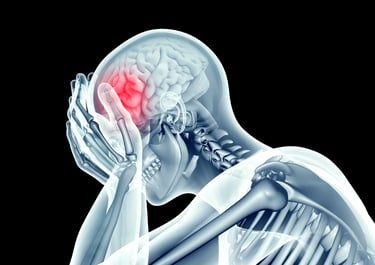eStoreRx™
Online Supplement Dispensary
eStoreRx™ is an easy direct-to-patient ordering & fulfilment program for lifelong wellness.
For over 40 years, Biotics Research Corporation has revolutionized the nutritional supplement industry by utilizing “The Best of Science and Nature”. Combining nature’s principles with scientific ingenuity, our products magnify the nutritional
eStoreRx™ is an easy direct-to-patient ordering & fulfilment program for lifelong wellness.
Biotics Research is proud to expand our commitment to education with the Wellness Unfiltered Pro Podcast. Each episode delves into key health topics and the clinical applications of our premier products. Through candid, insightful conversations, our team offers practical guidance to keep you informed and empowered as a healthcare professional.
February 12 2026
The results of a randomized, double-blind, placebo-controlled trial describing the effects of taurine supplementation on blood pressure and vascular f...
 Neuroinflammation is a brain immune response that is associated with neurodegenerative diseases, and is primarily driven by activation of microglia, the brain’s resident macrophages. Dysregulation in peripheral and central inflammatory cytokine signaling interrupts normal microglial function, leading to neuronal dysfunction, neurotoxicity, neurodegeneration , and attenuated neurogenesis, processes that underlie most CNS diseases and result in deleterious effect on behavior, mood, motivation and cognition. Researchers measured the neuroinflammatory response produced by a systemic administration of the Escherichia coli lipopolysaccharide (LPS: endotoxin) in eight healthy male subjects with the PET radiotracer [11C]PBR28 which binds to translocator protein, a molecular marker that is up-regulated by microglial activation. They also measured inflammatory cytokines in serum and sickness behavior profiles before and after LPS administration to relate brain microglial activation with systemic inflammation and behavior. LPS administration significantly increased [11C]PBR28 binding 30-60%, demonstrating microglial activation throughout the brain, which was accompanied by an increase in blood levels of inflammatory cytokines, vital sign changes, and sickness symptoms. This is believed to be the first demonstration in humans that a systemic LPS challenge induces robust increases in microglial activation in the brain.
Neuroinflammation is a brain immune response that is associated with neurodegenerative diseases, and is primarily driven by activation of microglia, the brain’s resident macrophages. Dysregulation in peripheral and central inflammatory cytokine signaling interrupts normal microglial function, leading to neuronal dysfunction, neurotoxicity, neurodegeneration , and attenuated neurogenesis, processes that underlie most CNS diseases and result in deleterious effect on behavior, mood, motivation and cognition. Researchers measured the neuroinflammatory response produced by a systemic administration of the Escherichia coli lipopolysaccharide (LPS: endotoxin) in eight healthy male subjects with the PET radiotracer [11C]PBR28 which binds to translocator protein, a molecular marker that is up-regulated by microglial activation. They also measured inflammatory cytokines in serum and sickness behavior profiles before and after LPS administration to relate brain microglial activation with systemic inflammation and behavior. LPS administration significantly increased [11C]PBR28 binding 30-60%, demonstrating microglial activation throughout the brain, which was accompanied by an increase in blood levels of inflammatory cytokines, vital sign changes, and sickness symptoms. This is believed to be the first demonstration in humans that a systemic LPS challenge induces robust increases in microglial activation in the brain.
Sandiego, CM, et al. Imaging robust microglial activation after lipopolysaccharide administration in humans with PET. PNAS, October 6, 2015, vol. 112, no. 40
Submit this form and you'll receive our latest news and updates.
*These statements have not been evaluated by the Food and Drug Administration. This product has not intended to diagnose, treat, cure, or prevent any disease.
© 2025 Biotics Research Corporation - All Rights Reserved
Submit your comment